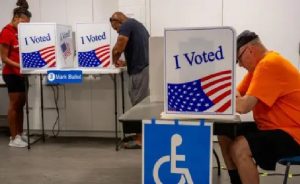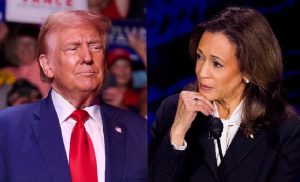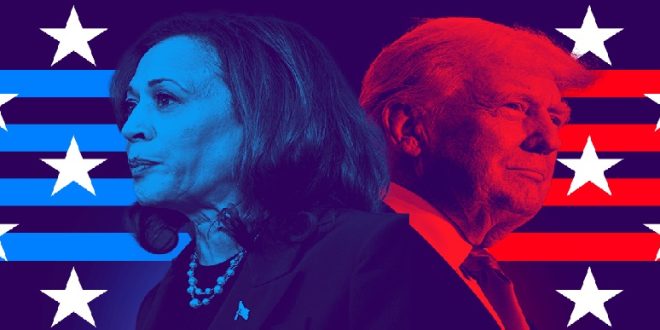29-10-2024
WASHINGTON/ NEW YORK: Donald Trump enjoys a huge lead among men, while women tell pollsters they prefer Kamala Harris by a similarly large margin. The political gender gap reflects a decade of social upheaval and could help decide the US election.
For the first woman of color to secure a presidential nomination, and only the second woman to ever get this close, Kamala Harris goes to great lengths not to talk about her identity.
 “Listen, I am running because I believe that I am the best person to do this job at this moment for all Americans, regardless of race and gender,” the vice-president said in a CNN interview last month.
“Listen, I am running because I believe that I am the best person to do this job at this moment for all Americans, regardless of race and gender,” the vice-president said in a CNN interview last month.
And yet, despite all her efforts to neutralize the subject, gender is shaping up to be the defining issue of this campaign.
“Madame President” would be a new thing for America and it’s reasonable to assume that while many voters love the idea, some find the novelty a little unnerving.
The Harris campaign won’t say it publicly, but one official acknowledged to me recently that they do believe there is “hidden sexism” here that will deter some people from voting for any woman for president.
It’s 2024 and few people want to be the jerk who’ll tell a pollster outright that they don’t think a woman is fit for the Oval Office (though plenty are prepared to share misogynistic memes on social media). A Democratic strategist suggested there’s a code, when voters tell pollsters that Harris is not “ready” or doesn’t have the right “personality” or “what it takes,” what they really mean is that the problem is she’s a woman.
The Trump campaign says gender has nothing to do with it. “Kamala is weak, dishonest, and dangerously liberal, and that’s why the American people will reject her on November 5th,” it said this week. Although Bryan Lanza, a senior adviser to the campaign, texted me to say he’s confident Trump will win because “the male gender gap gives us the edge”.
 Last time a woman ran for president, negative attitudes to her gender were clearly a factor. Eight years ago Hillary Clinton touted her being the first female nominee of a major party. The campaign’s slogan “I’m with her” was a not very subtle reminder of her trailblazing role.
Last time a woman ran for president, negative attitudes to her gender were clearly a factor. Eight years ago Hillary Clinton touted her being the first female nominee of a major party. The campaign’s slogan “I’m with her” was a not very subtle reminder of her trailblazing role.
Pennsylvania Congresswoman Madeleine Dean remembers discussing Clinton’s candidacy with voters. I spent an afternoon with Dean as she campaigned in her district this week and she told me that back in 2016 people would tell her, ‘There’s just something about her.’
She says she soon realized that “It was about the ‘her.’ That was a thing. It was that (Hillary) was a woman.”
While Dean thinks that sentiment is less prevalent today, she acknowledges that even now, “there are certain people who just think ‘A powerful woman? No, a bridge too far.’”
A lot has changed for women since 2016. The #MeToo movement in 2017 increased awareness of the subtle and the not so subtle discriminations women face at work. It changed the way we talk about women as professionals. MeToo may have made it easier for a candidate like Harris to secure the nomination but those big steps forward on the issues of diversity, equity, and inclusion were interpreted by some as a step back, especially for young men who felt they’d been left behind. Or the changes were simply a step too far for conservative Americans who prefer more traditional gender roles. (Int’l Monitoring Desk)
 Pressmediaofindia
Pressmediaofindia




